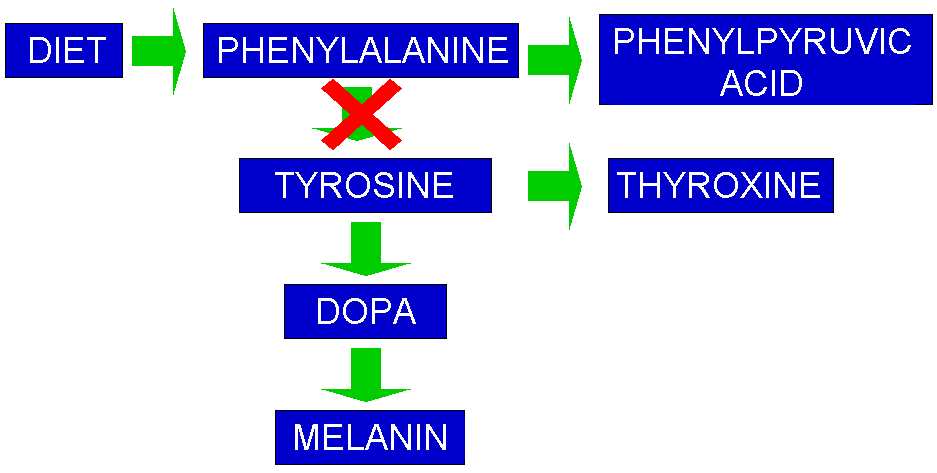


The raised phenylalanine in the blood results in increased phenylpyruvic acid which is excreted in the urine in PKU, this is useful in diagnosis.
The phenylpyruvic acid has also been shown to inhibit the enzyme pyruvate decarboxylase in brain (Bowden and McArthur,1972). This would lead to a decrease in energy for the developing brain and decreased myelin formation, which is found in PKU. Together, these could explain the mental retardation found in PKU.
Many substances are harmful to the developing foetus and phenylalanine appears to be one of these, hyperphenylalaninemia resulting in congenital heart defects and microcephaly (An abnormally small head and brain).
The lack of melanin leads to decreased pigmentation of the person with PKU. Such patients therefore have blond hair and blue eyes and certain normally pigmented parts of the brain (such as the substantia nigra) may also lack pigment.
Thyroxine deficiency can lead to hypothyroidism, which can be treated with hormone replacement.
View References
Return To Main Page
New Leaf (UK) Ltd
Professional Events UK
Radzoule
Find Discos
Event Planning Directory
Hire PA
Hire PA
Bands For Hire
Bands For Hire